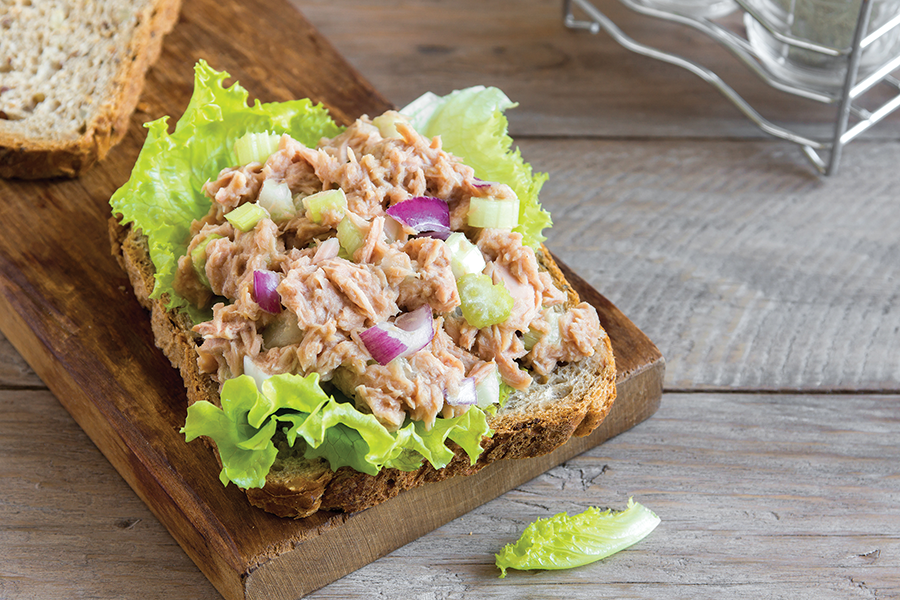 Coffee and tea are two of the most popular morning pick-me-up beverages. We all have our preference between the two. The potent smell of a fresh pot of coffee may be enough to help you stumble out of bed in the morning or perhaps the comforting aroma of hot tea sounds more appealing. Is one better for health than the other?
Coffee and tea are two of the most popular morning pick-me-up beverages. We all have our preference between the two. The potent smell of a fresh pot of coffee may be enough to help you stumble out of bed in the morning or perhaps the comforting aroma of hot tea sounds more appealing. Is one better for health than the other?
Caffeine Content and Energy
For many people, the caffeine kick that coffee or tea provides may be the primary reason the beverage is consumed, and coffee typically has more caffeine content per standard cup than tea: 80 to 115 milligrams vs. around 40 milligrams, respectively.1 However, this doesn’t necessarily reflect the strength of the perceived energy jolt. In a 2000 study, subjects were randomized to receive either coffee or tea, both at varying degrees of strength and caffeine content. The researchers found that the two groups experienced similar degrees of autonomic stimulation (e.g., changes in heart rate, skin temperature) and elevated mood, regardless of caffeine content.2 This led researchers to conclude that there must be other factors in coffee and tea consumption, besides just caffeine content, that lead to the physical and perceived mental effects experienced after consumption.2
There is, however, a measurable difference between coffee and tea in how quickly the body absorbs the caffeine. When delivered into the body via coffee, caffeine is absorbed more quickly than that in tea. In fact, your body absorbs 99 percent of coffee’s caffeine within 45 minutes, with peak blood concentrations appearing as early as 15 minutes after consumption.4 This can make you feel jittery and increase your heart rate. If you’re highly sensitive to caffeine or are feeling anxious, tea may be a more suitable choice. Tea contains L-theanine, an amino acid with calming properties that may relax you while keeping your mind sharp and alert.3
In short, caffeine is a popular stimulant found in many foods and drinks, including coffee and tea. While it has been associated with many benefits, including temporarily counteracting tiredness and improving physical performance, consuming too much can have a detrimental effect on your health.5
Antioxidants
Coffee and tea are both loaded with antioxidants, primarily polyphenols.6–8 Antioxidants, which protect the body against free radical damage, can help prevent certain chronic diseases, such as cancer and heart disease. Theaflavins, thearubigins, and catechins are primarily found in black tea, while flavonoids and chlorogenic acid (CGA) are primarily found in coffee.5,6 In the Western diet, antioxidants are more often obtained from beverages as opposed to foods.5 While blueberries and kale, for example, are richer sources of antioxidants, they may not be as easily accessible for some individuals as coffee or tea.
There has been some debate among the experts on whether coffee or tea is higher in antioxidants, but this uncertainty is primarily based on the many ways coffee can be prepared. For example, certain antioxidant properties of coffee are affected (i.e., increased or decreased) by the method of extraction and roasting used on the beans. However, the total antioxidant content of roasted coffee is, generally, thought to be comparable to that of green tea.7,8 It is important to note that while coffee and tea may be considered dietary sources of antioxidants, they should never be your only source! A varied diet of whole, plant-based foods is the best source of antioxidants.7,8
Summary
Coffee and tea have similar health benefits. In terms of caffeine, coffee may provide a quicker jolt of energy, while tea may offer a more sustained energy increase. The antioxidants found in both drinks offer benefits that can prevent chronic diseases, but neither beverage should take the place of the antioxidants found in whole, plant-based foods. Ultimately, both coffee and tea are healthy and safe in moderation, so the choice ultimately rests in personal preference.
Sources
- Robson D. Tea or coffee: which drink is better for you? BBC website. https://www.bbc.com/future/article/20160115-tea-vs-coffee-which-drink-is-better-for-you. Updated January 14, 2016. Accessed November 18, 2020.
- Quinlan P, Lane J, Moore KL, et al. The acute physiological and mood effects of tea and coffee: the role of caffeine level. Pharmacol Biochem Behav. 2000;66(1):19-28.
- Lang A. Coffee vs. tea: is one healthier than the other? Healthline website. https://www.healthline.com/nutrition/coffee-vs-tea. Updated September 6, 2019. Accessed November 21, 2020.
- Institute of Medicine (US) Committee on Military Nutrition Research. Caffeine for the sustainment of mental task performance: formulations for military operations. Washington (DC): National Academies Press (US); 2001.
- Petre A. What Is caffeine and is it good or bad for health? Healthline website. https://www.healthline.com/nutrition/what-is-caffeine. Updated June 30, 2020. Accessed November 24, 2020.
- Yamagata K. Do coffee polyphenols have a preventive action on metabolic syndrome associated endothelial dysfunctions? an assessment of the current evidence. Antioxidants (Basel). 2018;7(2):26.
- Bjarnadottir A. Coffee and antioxidants: everything you need to know. Healthline website. https://www.healthline.com/nutrition/coffee-worlds-biggest-source-of-antioxidants. Updated February 20, 2019. Accessed November 21, 2020.
- Yashin A, Yashin Y, Wang JY, Nemzer B. Antioxidant and antiradical activity of coffee. Antioxidants (Basel). 2013;2(4):230-245.





